
Research
Featured Publication
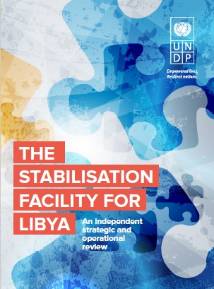
This report summarizes the findings and recommendations from an independent review of the Stabilisation Facility for Libya, conducted in the period March-May 2018. Read more »
Books
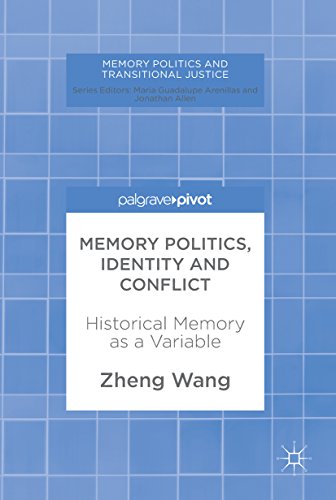
Memory Politics, Identity and Conflict: Historical Memory as a Variable, (Palgrave Macmillan, 2018).
This book focuses on the methodology of research on historical memory and contributes
to theoretical discussions concerning the use of historical memory as a variable to
explain political action and social movement. The chapters of the book conceptualize
the relationship between historical memory and national identity formation, perceptions,
and policy-making.
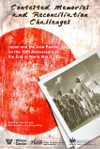
Contested Memories and Reconciliation Challenges, (Woodrow Wilson Center Press, 2015).
The eyes and ears of much of Asia will be on Japanese Prime Minister Shinzo Abe when he delivers a speech in August 2015 to commemorate 70 years since the end of World War II. It will undoubtedly be the most scrutinized of Abe’s public addresses to date, a fact that has not escaped the Prime Minister’s Office as experts have been assembled months in advance to advise him on the broader strategy and the appropriate wording for the occasion. Read more »
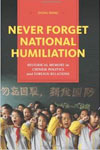
Never Forget National Humiliation: Historical Memory in Chinese Politics and Foreign
Relations, Columbia University Press, 2014.
How could the Chinese Communist Party (CCP) not only survive but even thrive, regaining the support of many Chinese citizens after the Tiananmen Square crackdown of 1989? Why has popular sentiment turned toward anti-Western nationalism despite the anti-dictatorship democratic movements of the 1980s? And why has China been more assertive toward the United States and Japan in foreign policy but relatively conciliatory toward smaller countries in conflict? Read more »
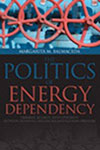
The Politics of Energy Dependency: Ukraine, Belarus and Lithuania Between Domestic
Oligarchs and Russian Pressure, 1992-2012 University of Toronto Press, 2013.
Energy has been an important element in Moscow’s quest to exert power and influence in its surrounding areas both before and after the collapse of the USSR. With their political independence in 1991, Ukraine, Belarus, and Lithuania also became, virtually overnight, separate energy-poor entities heavily dependent on Russia. This increasingly costly dependency – and elites’ scrambling over associated profits – came to crucially affect not only relations with Russia, but the very nature of post-independence state building. Read more »
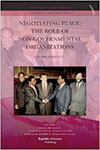
Negotiating Peace: The Role of NGO's in Peace Processes Brill, Academic Publishers, 2013.
When conflict has shattered a society in its foundation and the memory of individual and collective traumas is so deep that it cannot be eliminated by oblivion alone, the desire to explore new ways is great and very difficult. Sometimes the tension between the need for an alternative and the lack of that alternative is resolved by the dedication, presence, advocacy and innovation of NGOs. Read more »
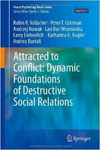
Attracted to Conflict Springer, 2013.
Conflict is inherent in virtually every aspect of human relations, from sport to parliamentary democracy, from fashion in the arts to paradigmatic challenges in the sciences, and from economic activity to intimate relationships. Yet, it can become among the most serious social problems humans face when it loses its constructive features and becomes protracted over time with no obvious means of resolution. Read more »
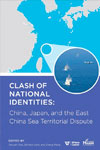
Clash of National Identities: China, Japan and the East China Sea Territorial Dispute. Woodrow Wilson International Center for Scholars, 2013 (Co-edited with Tatsushi Arai
and Shihoko Goto).
As tensions between Japan and China continue to bubble over islands in the East China Sea, scholars from the two countries outline not only the origins, but also the policy options to resolve the territorial dispute. Together with George Mason University, the Wilson Center hosted a conference on how the ongoing conflict may be resolved in late January. Clash of National Identities: China, Japan, and the East China Territorial Dispute is a compilation of essays by the conference participants. Read more »

Conflict and the Refugee Experience: Flight, Exile, and Repatriation in the Horn of
Africa. Ashgate, 2006.
One of the most serious threats to peace, security and the sovereignty of nations in the post-Cold War era is population migration. A particularly volatile form of this threat is the global refugee problem and nowhere is this issue more severe than in Africa. This book offers a comprehensive analysis of refugee experience in the Horn of Africa. It includes an examination of the dynamics of flight from the country of origin, settlement in exile and repatriation to the country of origin. Read more »
Articles
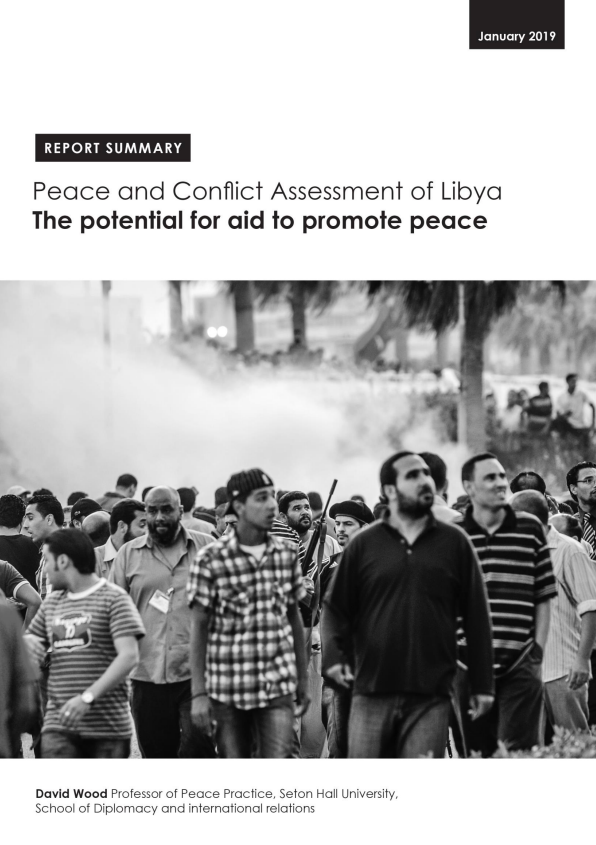
This report is designed to help international actors plan their assistance by: (1)
providing deeper insight as to the nature of conflict dynamics in the country; (2)
asking a set of challenging questions which aid actors should collectively answer;
(3) suggesting principles for delivering aid that may help answer these questions;
and (4) by identifying critical peacebuilding needs that should be prioritized when
planning assistance. The analysis and findings outlined below, while developed for
the German Federal Ministry for Economic Cooperation and Development (BMZ) as food
for thought as it develops its assistance strategy for Libya, are also relevant for
a wider set of aid actors and as stimulus for collective thinking on how to most effectively
promote the transition and peace in Libya.

As the world shifts away from the unquestioned American hegemony that followed in the wake of the Cold War, the United States is likely to face new kinds of threats and sharper resource constraints than it has in the past. However, the country’s alliances, military institutions, and national security strategy have changed little since the Cold War. Read more »
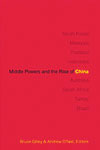
China's rise is changing the dynamics of the international system. Middle Powers and the Rise of China is the first work to examine how the group of states referred to as "middle powers" are responding to China's growing economic, diplomatic, and military power. States with capabilities immediately below those of great powers, middle powers still exercise influence far above most other states. Read more »
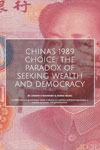
Omer Gokcekus: "Impediments to Trade Across the Green Line in Cyprus: Classic Barriers and Mistrust," Journal of Peace Research, 49(6), 863-872, November 2012.
Cyprus is a divided island. Despite the lack of a comprehensive peace agreement reunifying the country, in 2004 trade commenced across the Green Line that separates the Greek and Turkish Cypriot communities. The volume of trade has grown steadily since, but has it reached its full potential? Read more »
David Wood, Understanding and Responding to Security Needs in Conflict-Affected Areas. (The Caucasus Institute for Peace, Democracy and Development/Saferworld, 2011).

